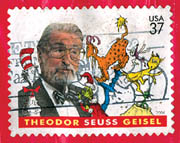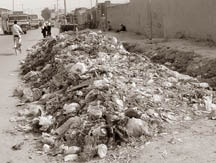|
observer |
|
|
|
|
|
OTHER LINKS |

|

|

|
|
|
|
|
Garbage is one of the most serious problems in the city of Colombo, with the daily quantity of garbage generated and collected being about 675 MT.
The Solid Waste Management Division of the CMC has already implemented several waste minimisation programmes with the help of the public and other organisations. Eco-schools, involving schoolchildren, is one such programme.
Under this scheme, students should bring with them and hand over all recyclable waste items to the CMC staff who will visit schools on designated days.
The efforts of the children who bring such items will be appreciated with token gifts.
The many programmes implemented by the CMC have succeeded in reducing the amount of garbage from 780 MT in 2002 to 675 MT. However, the problem hadn't been tackled effectively with public awareness low on solid waste management.
Guru Gammana to solve teacher shortage
The Education Ministry plans to set up teacher villages (Guru Gammana) in 25 selected areas in the country next year, as a solution to the teacher shortage in schools in areas with less facilities. The Ministry has earmarked a total expenditure of Rs. 125 million for this project, with each fully equipped village costing over five million rupees, Education Minister Susil Premajayantha said recently.
Addressing a conference held at Orubendiwewa Navodya School, Mahiyangana, the Minister said accommodation was the main problem faced by teachers coming from other parts of the country to serve in such areas. The teacher villages will solve this problem.
The Ministry will also provide Rs. 20,000 each to schools in the Mahiyangana Zone, as a short-term measure to improve their physical resources.
Premajayantha said the Education Ministry never hesitated in providing funds and other assistance to Provincial Education Ministries. All funds required by these ministries for this year have been set apart under the National Education Plan.
The Ministry has also taken steps to rehabilitate and refurbish the eight provincial education offices at a cost of two million rupees each, and also renovate 25 out of the 94 selected zonal education offices, at a cost of one million rupees each. This will build close links and co-operation between teachers and education officials and promote a more conducive office environment.
Moves to protect ozone layer
It is hoped that Sri Lanka would be among the countries not using CFC (Chloro Fluoro Carbon) by 2008, Consulting Director, National Ozone Unit, Sri Lanka, Dr. W.L. Sumathipala said.

Speaking at a CFC awareness workshop held in Colombo recently, Dr. Sumathipala said arrangements have been made to reduce the import and use of CFC utilising equipment in the island.
The Government has drafted new regulations to prohibit the import of CFC utilising equipment into the country in accordance with the Vienna Convention and Montreal Protocol.Alternative arrangements for such equipment are being introduced.
"CFC gases are the main contributor to the depletion of the ozone layer. The Government has allocated a large sum of money to conduct recovery and recycling programmes, establish recovery and recycling centres and conduct island-wide quiz competitions to make the public aware of this matter," Dr. Sumathipala said.
Learning national languages
Sri Lankan children must learn our national languages so they can communicate their thoughts and ideas without any problem, Education Minister Susil Premajayantha said. Addressing the inauguration of the second national language (Sinhala/Tamil) curriculum development workshop at the BMICH, the Minister thanked the German Technical Co-operation (GTZ) for providing free training to teachers to teach a second language.
"Sri Lanka is a country with a multi-ethnic society. Children are our future and they can develop the country when different societies understand each other. So, it's absolutely vital that they learn other national languages," he added. The President has already taken steps to start the teaching of a second language. Arrangements will be made to teach Sinhala to Tamil students and vice versa.
Education Policy on Second National Language Secretary, Ministry of Education, Ariyaratna Hewage said, "without language skills, children cannot learn other subjects. The system of teaching another language will be introduced from Grades 6 to 10. A student will then be able to choose the second language for the GCE O/L".
The National Institute of Education with the co-operation of the GTZ and the Education Ministry is in the process of developing curriculum material and training teachers for the new courses.
Birth centenary of children's author
The American stamp shown here depicts children's author Dr. Theodor Seuss Geisel, who has to his credit over 40 children's books, of which 200 million copies are being read the world over.

This stamp calls attention to the very unique and creative process of one of the world's most beloved authors. The stamp helps us to gain appreciation and understanding of the wonder of fantasy which is a necessary ingredient in living, according to Dr. Seuss.
Apart from his picture, the stamp shows six of the characters created in his books for children, some of which are Grinch, Glots and Skritz. Dr. Seuss once said, "children want the same things we want. To laugh, to be challenged, to be entertained and delighted". His works have also been made into television specials, Broadway plays and musicals.
Born on March 2, 1904, Theodor Seuss Geisel, after graduating began a career as an artist, writer and cartoonist. He received many honours including the prestigious Pulitzer Prize in 1984 "for his special contribution over nearly half a century to the education and enjoyment of American children and their parents."
Solar powered street lights
Sri Lanka's first solar power street light project was launched recently at Pelawatta, on the Battaramulla - Thalawathugoda main road. The project was launched on a concept by Highways Minister Jeyeraj Fernandopulle, to encourage the participation of local companies to develop innovative highway solutions to improve the road network of Sri Lanka.
A local company has developed the solar power street light system along the stretch of road from Pelawatta to Kottawa. The system had been developed by the company with the support of the Minister and Road Development Authority (RDA) officials.
The company has developed other effective energy saving methods too. Solar-based solutions can be offered to other highway-related problems as well. Intelligent traffic systems and railway crossing systems complying to international standards can now be introduced in Sri Lanka. The RDA is now promoting solar power street lighting as an energy saving cost effective method for local roads.
Vocational training for children's Home inmates
A vocational training programme comprising the skills, home gardening, fruit and flower cultivation, cookery, sewing and handicrafts was launched at the Peter Weerasekera Children's Home at Dambuwa, Buthpitiya recently.
The inauguration was held with the participation of Thor Hermen Thorsen, representative of the Rotary Club of Gymsoy, Norway, Lorenz Perera and Grace Ludekens of Australia, and Trustees of the Children's Home, Singha and Mala Weerasekera.(inset).
The programme was assisted by the Commercial Bank, C.I.C. Agri Business Company, Rotary Clubs of Gymsoy, Norway and Colombo Central and the Development of Agriculture, Peradeniya.









